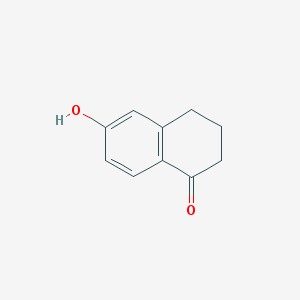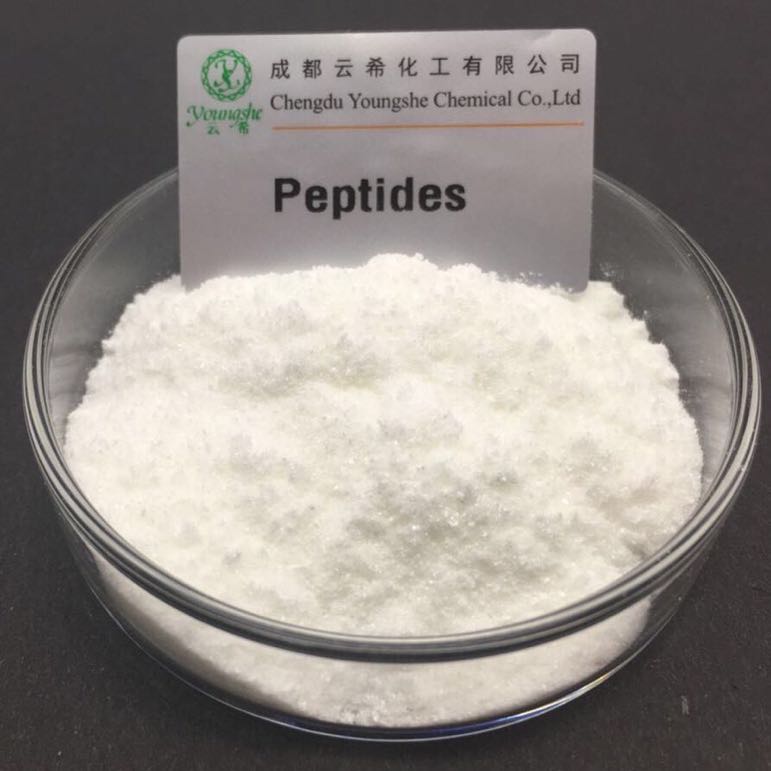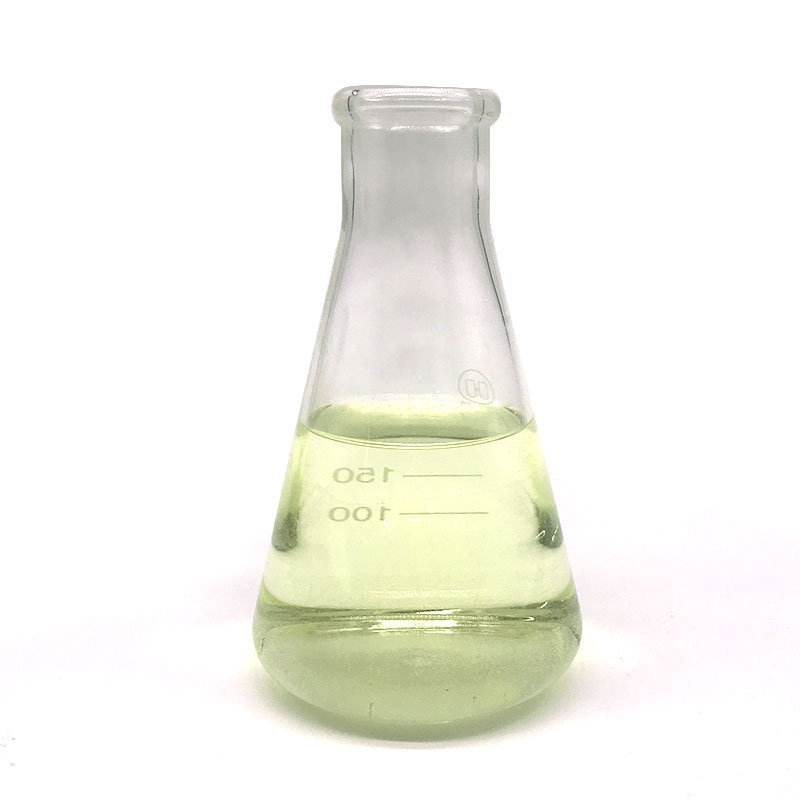-
Categories
-
Pharmaceutical Intermediates
-
Active Pharmaceutical Ingredients
-
Food Additives
- Industrial Coatings
- Agrochemicals
- Dyes and Pigments
- Surfactant
- Flavors and Fragrances
- Chemical Reagents
- Catalyst and Auxiliary
- Natural Products
- Inorganic Chemistry
-
Organic Chemistry
-
Biochemical Engineering
- Analytical Chemistry
- Cosmetic Ingredient
-
Pharmaceutical Intermediates
Promotion
ECHEMI Mall
Wholesale
Weekly Price
Exhibition
News
-
Trade Service
Author . . . Ye Maple Red Paboli Pearl Monoanti (English name, Pembrolizumab, product name: Nerida Keytruda), is a PD-1 humanized monoclonal antibody developed by Mercadon.
was approved by the U.S. Food and Drug Administration (FDA) on September 4, 2014, and approved by the European Medicines Agency (EMA) on July 17, 2015 and sold by Mercadon in the U.S. and European markets.
began, Paboli Pearl single resistance began the path to become a "god".
, globally, Pabliju monoantigen is the FDA's most approved drug, spanning major tumor species.
today we will take stock of the Pabli Pearl single resistance at home and abroad are approved adaptation certificates are what? Pabli Pearl single anti-FDA approved adaptation certificate 1. Malignant melanoma In September 2014, based on the results of the KEYNOTE-002 study, Pabliju monoantigen became the first FDA-approved PD-1 inhibitor for second-line treatment of advanced malignant melanoma.
in the years that followed, based on data from the KEYNOTE-006 and KEYNOTE-054 studies, Paboli-Pearl monoantigen gained the first-line and complementary treatment of malignant melanoma, expanding the population benefiting.
2. Non-small cell lung cancer Pabliju single resistance in advanced non-small cell lung cancer (NSCLC) can be described as a Grand Slam.
Based on keyNOTE-024 research results, the FDA approved The first-line treatment of Pablic pearl monoantigens for PD-L1 TPS of 50%, and no EGFR or ALC gene mutation metastasis NSCLC;
based on KEYNOTE-021G trial data, Pam monoantigen-combined pythonse-capratin has also been approved by the FDA for non-scaly late NSCLC treatment without EGFR/ALK mutations.
3. Head and Neck Squamous Cell Carcinoma In August 2016, Pablic Pearl Single Resistance obtained the first evidence of adaptation in head and neck squamous cancer with KEYNOTE-012 data for patients with relapsed/metastatic head and neck squamous cell carcinoma with progression of the disease after platinum chemotherapy.
, with the keyNOTE-048 study, a single drug was approved for relapse or first-line treatment of CPS1 or combined chemotherapy (regardless of CPS expression status) or metastatic head and neck squamous cell carcinoma.
4. Classic Hodgkin's Lymphoma In March 2017, the U.S. FDA approved The Pablic Pearl Monoantigen for the treatment of adults and children with refractic classic Hodgkin's lymphoma, which has been treated with more than 3 lines in the past, opening a new chapter in the treatment of classic Hodgkin's lymphoma with anti-PD-1 immunotherapy.
the adaptation certificate is based on the KEYNOTE-087 study.
5. In May 2017, the FDA approved Pablic pearl monotherapy for patients with localized advanced or metastatic urethroid skin cancer who developed the disease during or after platinum-containing chemotherapy or within 12 months with a platinum-containing treatment as a new adjulytic or complementary treatment.
addition, the FDA has pledged to speed up approval of The Pablic Pearl Monoantigen for the treatment of locally advanced or metastatic urethra cancer patients who are insatiable with cisplatin chemotherapy.
6. Gastric Cancer September 2017, based on the results of the KEYNOTE-059 study, Paboli pearl single resistance was approved for relapsed localized late stage or metastatic gastric adenocarcinoma or adenocarcinoma at the gastroesophageal connection of the third-line treatment (PD-L1 CPS.1).
KETNOTE-059 study included a total of 259 patients, the drug dose: Pim monoantigen 200mg once every 3 weeks.
results: The ORR of Pim's monoantial resistance was 11.6 percent, and that of patients who had explicitly received second-line treatment was 16.4 percent.
the medium non-progressed lifetime (mPFS) was 2.0 months, the medium total lifetime (mOS) was 5.6 months, and the total survival rate for 12 months was 23.4%.
5.8 months after the mid-level follow-up, 2.3 percent of patients received CR and 9.3 percent received PR.
of patients with SD, the disease control rate (DCR) was 27%.
the medium easing duration is 8.4 months.
7 patients with highly unstable microsatelli satellites (MSI-H), the ORR was 57.1%, the CRR was 14.3% and the DCR was 71.4%.
of the 167 patients without MSI-H, the ORR was 9%, the CRR was 2.4% and the DCR was 22.2%.
7. High-microsatellite instability (MSI-H) tumor Pabliju monoantigen is used to treat adult and child patients with non-removable or metastasis MSI-H or misaligned repair defects (dMMR).
patients with solid tumors who have progressed through previous treatment and do not have a satisfactory alternative treatment option.
patients with colorectal cancer who progressed after treatment with fluorouracil, oxalipari and olithycon.
8. Cervical Cancer On June 12, 2018, Pablic Pearl Monoantigen, based on the results of the KEYNOTE-158 E Cohort study, was approved for the second-line treatment of relapsed or metastatic cervical cancer of tumor PD-L1 CPS1 during or after chemotherapy.
98 patients with cohort E, 77 (79%) had tumor expression PD-L1 (CPS1) and received at least first-line chemotherapy to treat metastasis.
PD-L1 status is determined using PD-L1 IHC 22C3 PharmDx Kit.
baseline characteristics of the 77 patients were: middle age 45 years old (range: 27-75 years), white 81%, Asian 14%, black 3%; ECOG PS 0 (32%) or 1 (68%); 92% scaly cells Cancer, 6% adenocarcinoma, 1% glandular histology, 95% M1 disease, 5% relapse disease, 35% of patients have received 1, 65% of patients have received 2 or more programs to treat recurrence or metastatic disease.
11.7 months of medium follow-up (range: 0.6 months - 22.7 months), Key in 77 patients with tumor expression PD-L1 (CPS -1%) The ORR treated by truda was 14.3% (11 cases, 95% CI: 7.4-24.1), with a total remission rate of 2.6% and a partial remission rate of 11.7%.
of the 11 patients who responded to the treatment, the medium DOR had not yet reached (range: 4.1 months to 18.6 plus months) and the proportion of patients with DOR at or above 6 months was 91%.
treatment response was not observed in 21 other patients with tumors that did not express PD-L1 (CPS-lt;1).
9. In June 2018, in adults and children, based on keyNOTE-170 research, the FDA approved Pablic pearl monoantigen for the treatment of adults and children with refractic primary lymphoma (PMBCL).
based on tumor response rate and response durability, the instruction is approved with accelerated approval.
In adults with PMBCL, Pabliju monoantigen is applied at a fixed dose of 200 mg every three weeks until the disease progresses, is unacceptablely toxic, or for up to 24 months in patients without disease progression.
In pediatric patients with PMBCL, Paboliju monoantigen resistance is applied at a dose of 2 mg / kg (up to 200 mg) every 3 weeks until the disease progresses or is not acceptable toxicity, or for up to 24 months in patients without disease progression.
10. In November 2018, with the results of keyNOTE-224 research, Pabliju single resistance was approved for second-line treatment of primary hepatocellular carcinoma, which had failed in the past.
Keynote-224 is a non-randomized, multi-center open-label Phase II clinical trial that included 104 patients with late-stage hepatocellular carcinoma who failed to treat soraphine, all with good liver function: Child-Pugh A-levels.
group were given 200 mg of 000 000 monoantiasis every 3 weeks.
results showed that the mPFS of patients after Pym monotherapy was 4.9 (3.4 to 7.2) months, mOS was 12.9 (9.7 to 15.5) months, and ORR was 17% and DCR was 62%.
46 per cent of patients with stable condition (SD).
11. Merkel Cell Cancer December 2018, based on keyNOTE-017 research results, the FDA accelerated approval of Pabliju monoantigen for the treatment of relapsed localized advanced or metastatic Mercer cell carcinoma.
KEYNOTE-017 is a multi-center, one-arm, open Phase II study conducted at 12 centers across the United States.
study group included metastatic or relapsed localized late-stage Merkel cell carcinoma and received first-line Pabli pearl monoantimmune therapy.
main study endpoints are ORR, and secondary study endpoints include PFS, DCR, and OS.
January 2015 to May 2017, the study included 50 patients.
of the patients in the group was 70 years old, of whom 80% were 65 years old.
43 patients (86%) were metastatic Merkel cell carcinoma and 7 (14%) were relapsed localized advanced Merkel cell carcinoma.
50 patients, 64% were cancer-positive and 36% were negative.
the data for this analysis is due on February 6, 2018, with a mid-level follow-up time of 14.9 months.
50 patients in the group received at least 1 dose of Pabliju monoantigen therapy.
the Independent Assessment Commission assessed ORR at 56 per cent, with CR and PR patients accounting for 24 per cent and 32 per cent, respectively.
further analysis based on MCPyV status, orR in positive and negative patients was 59% and 53%, respectively.
, 28 patients with objective remission had a long-lasting effect, with most patients lasting more than 24 months.
12. Renal cell carcinoma In April 2019, based on keyNOTE-426 research results, the FDA approved Paboliju monoantigen, a first-line treatment for advanced renal cell carcinoma.
is also the first approved combination of immuno-targeted drugs.
KEYNOTE-426 is a randomized, open label, phase III. study.
's first pre-planned interim analysis (at least 7 months of follow-up) showed that the first-line treatment of advanced renal cell carcinoma with Pabliju monoantigen and axiotinib significantly improved OS, PFS, and objective remission rates compared to Schoinini.
updated data show that a total of 861 patients were randomly assigned to the Paboliju monoanti-axitinib group (n-432) or the Schoinidinib group (n-429).
the 27-month follow-up period, the OS rate of the Pabliju monoanti-axithinib group was significantly higher than that of the Schoini group (HR 0.68, P 0.001; 24-month OS rate: 74% vs 66%).
the mid-OS in the Paboli-Zhu-Axitini group has not yet been reached, while the Schoini group is 35.7 months old.
PFS rate was also significantly higher than that of the Schonitini group (HR 0.71, P 0.001; 24-month PFS rate: 38% vs 27%).
PFS in the two groups was 15.4 months and 11.1 months, ORR was 60% and 40% (P.0001), full mitigation (CR) was 9% and 3%, respectively, and the medium mitigation duration (DOR) was 23.5 months and 15.9 months, respectively.
13. Esophageal cancer In July 2019, the FDA officially approved the treatment of Paboliju monoantigen for PD-L1-positive (CPS-10) relapsed localized advanced or metastatic esophageal squamous cancer! Paboliju monotherapy became the first immunotherapy drug approved in the field of esophageal cancer.
this approval is based on the results of phase III. study KEYNOTE-181, which demonstrated that Pabliju monoantigen significantly prolonged OS in patients with PD-L1-positive advanced esophageal cancer with chemotherapy.
KEYNOTE-181 for Phase III. Study, into the group of advanced or metastatic esophageal adenocarcinoma or squamous cancer or Siewert I type esophageal gastric adenocarcinoma patients, all patients are first-line treatment or progression in treatment, physical condition is good, ECOG PS score 0 to 1 points, head-to-head comparison of Paboli pearl monoantigen and chemotherapy efficacy and safety.
a total of 628 patients in the group, 314 patients in each group, were randomly given 200 mg of Pabliju monotherapy, treated continuously every 3 weeks for 2 years, or chemotherapy (including yew alcohol, dositan or olithicol) selected by the researchers.
401 cases of squamous cancer and 222 cases of PD-L1-positive (CPS-10) patients.
study focused on OS in patients with esophageal squamous cancer (SCC), PD-L1-positive (CPS-10) patients, and people with intentional therapy (ITT).
results presented at the 2019 ASCO-GI Conference show that The Pabli Pearl single resistance is doing quite well.
to OS, in patients who were positive for PD-L1, Pabliju significantly extended the mesos by 2.6 months compared to chemotherapy, reduced the risk of death by 31%, and the difference was statistically significant (9.3 months vs 6.7 months; HR 0.69;95% CI 0.52-0.93; P-0.0074; 18-month OS rate was also better, with 26% and 11% respectively.
of patients with
, the OS of the Pablic pearl monoantigen group also showed clinical improvement, reaching 8.2 months, and the chemotherapy group was 7.1 months (HR 0.78; 95% CI 0.63 to 0.96; P=0.0095); and the 18-month OS rate was 23% and 12%, respectively.
ITT crowd, 18 months.







